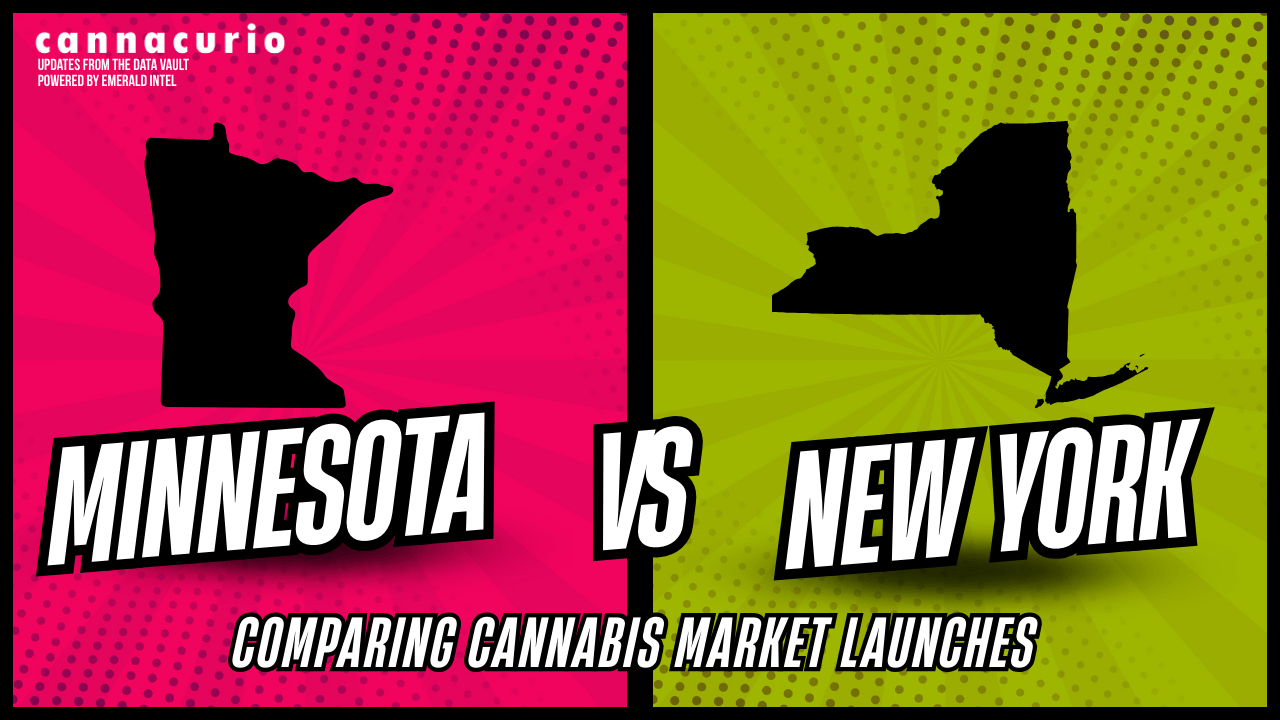
Higher Education and Cannabis
Within the past several years, the number of colleges and universities offering cannabis courses, programs, and degrees has increased significantly. Growing from a small number of schools in 2018 and 2019 to more than 100 today (and still growing), the legal cannabis industry has legitimized to the point that some states are even investing into cannabis college programs.
For example, New York Gov. Kathy Hochul announced $5 million in funding earlier this year for community colleges in the City University of New York (CUNY) and State University of New York (SUNY) systems to develop and offer cannabis credential programs and courses.
In addition, the New York Department of Labor website includes a full list of 22 cannabis education programs, certifications, associate’s degrees, bachelor’s degrees, and master’s degrees offered by city, state, and private colleges and universities throughout the state, including leading schools like Cornell University and Syracuse University.
Higher Education Supports Professional Growth in the Cannabis Industry
Higher education institutions are responding to the growing need for trained and knowledgeable cannabis professionals. According to the 2022 Leafly Jobs Report, the cannabis industry has created an average of 280 new jobs per day, which equates to a massive need for employees with the right skills and education.
Cannabis and cannabis-related companies are already working with colleges and universities to connect students with employers. Many of the students employers are finding in these programs are highly qualified people who are pursuing second careers in the cannabis industry after spending years working as healthcare professionals, scientists, business professionals, and more. In other words, companies are finding a wide range of talent in these higher education programs, not just entry-level workers.
Colleges and universities that offer cannabis curriculums tout the professional networking benefits that being a part of the educational community offers to students. University of Rhode Island program lecturer Stephanie Forschner-Dancause told MJBizDaily that the school’s cannabis program focuses heavily on networking, and “it’s through these interactions that job opportunities are shared.”
In addition, many higher education cannabis programs feature leading educators. When LIM College in New York announced the launch of its cannabis bachelor’s and master’s degree programs earlier this year, the list of course instructors featured a number of experienced cannabis industry professionals, including company founders and C-suite executives from Green Growers Alliance, Alibi Cannabis, MRTA Law, Purple City Genetics, Poplar, Community Growth Partners, and more. By bringing instructors who work in the cannabis industry into the school’s programs, students not only get deeper perspectives but also access to more networking opportunities.
Higher Education Institutions Offering Cannabis Degrees
The number of colleges and universities offering cannabis programs is in the hundreds today. Of course, not all programs are equal. Some schools offer a class or two. Some offer certificate programs, and others offer complete associate’s, bachelor’s, or master’s degree programs.
It’s also important to note that not all schools are equal. Some are for-profit institutions while others are not-for-profit. Some schools have regional and national accreditations while others do not. Some may even have additional accreditations.
When choosing where you want to get your cannabis education, do your research and make sure you choose a school and program that will position you to pursue your career in the best way possible. This is particularly important if you hope to obtain a terminal degree later or you want to teach at the college level in the future.
With that said, following are some of the schools across the United States that offer cannabis associate’s, bachelor’s, and master’s degree programs:
Higher Education Cannabis Associate’s Degree Programs
- Beal University (Maine)
- City College of San Francisco (California)
- Eastern Gateway Community College (Ohio)
- Community College of Denver (Colorado)
- Pennsylvania Institute of Technology (Pennsylvania)
- State University of New York – Erie (New York)
Higher Education Cannabis Bachelor’s Degree Programs
- Beal University (Maine)
- Colorado State University – Pueblo (Colorado)
- Community College of Denver (Colorado)
- Johnson & Wales University (Rhode Island)
- Lake Superior State University (Michigan)
- LIM College (New York)
- York College of Pennsylvania (Pennsylvania)
Higher Education Cannabis Master’s Degree Programs
- American International College (Massachusetts)
- LIM College (New York)
- Pacific College of Health and Science (California)
- Rowan University (New Jersey)
- Thomas Jefferson University (Pennsylvania)
- University of Colorado – Anschutz (Colorado)
- University of Maryland – Baltimore (Maryland)
Key Takeaways about Higher Education and Cannabis
We’ve come a long way in just a few short years from a few higher education cannabis-related programs related to hundreds of degree programs, courses, and certificate programs offered by a wide variety of higher education institutions.
As the industry continues to expand, new markets open, and existing markets mature, the need for highly educated and skilled professionals working both in and with the cannabis industry will increase even more. As a result, you can expect to see even more colleges launch cannabis-specific programs in the future.
Need more insights?



.png)